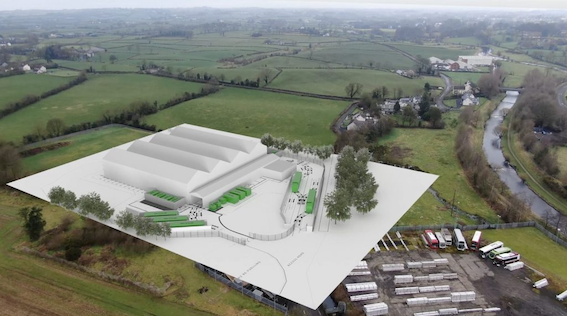“Keir’s 2030 is for the greatest investment in home grown energy in British history – we’ll double onshore wind, we’ll treble solar, we’ll quadruple offshore wind we’ll invest in nuclear and hydrogen and carbon capture and tidal power friends that’s the new Britain we can build together.
Our national wealth fund will invest alongside the private sector in our ports, in hydrogen and yes saving our steel industry and communities.
You can be the people to build our clean energy future, in offshore wind, in hydrogen, in carbon capture no community left behind or left out no more shutting out of trade unions as we build this future no more power in this country without jobs in this country, that’s the new Britain we can build together.”
Strong and encouraging words from @Ed Miliband hot off the podium at the Labour Party Conference, and drive like this is certainly what’s needed at this crucial moment for “U.K. energy plc”
In 2021, the UK unveiled an ambitious vision to emerge as a ‘leading global player in hydrogen’ by 2030. However, two years down the line, it appears that progress has been slower than anticipated, and the UK has slipped behind its European competitors who are actively vying for a share of the hydrogen market.
The UK’s aspiration to achieve 10 gigawatts of hydrogen production by the end of the decade would position it as one of Europe’s primary producers. Yet several projects have not secured the necessary financial approvals.
____________________
The waste-plastic tech making hydrogen and graphene
____________________
In contrast, Germany, the largest economy in Europe, has allocated €50 billion to assist industries in transitioning to clean fuels, while the Netherlands is in the process of retrofitting a pipeline network from the Rotterdam port directly into the industrial heartland of Germany.
As a result, the UK’s progress “could do better”, with both Germany and the Netherlands surpassing it in terms of development, as reported by industry organisation the Energy Networks Association.
Last month, the association stated that the UK has slipped from second to eighth place, citing “missed opportunities” and uncertainties surrounding policies as contributing factors.
The UK was swift in recognising the imperative to cultivate a hydrogen market and, according to the projects documented in BloombergNEF’s Hydrogen Project Database, has the potential to become the foremost European producer of clean hydrogen by 2030.
Vice president of Siemens Energy UK & Ireland, Steve Scrimshaw said at an event connected to the Conservative Party conference last week, “While the UK has spent time developing a complex support model for hydrogen, neighbouring countries have been proceeding with projects. We are yet to award anything in the UK over 5 megawatts whereas the scale of other green hydrogen projects is around 100 megawatts so the scale has been growing.”

Hygen are working with Wrightbus to deliver a state of the art green hydrogen production facility in Ballymena. Once built the facility will generate clean green energy that can be deployed at a commercial scale by us at Ryze, to power Wrightbus’ fleet of hydrogen buses across the island of Ireland.
However, despite all this, hydrogen has evolved into a worldwide sensation, with over 1,000 projects already announced and investment commitments totalling around $320 billion expected by 2030, as reported by Nomura. The financial challenge for the U.K. is evident, whereas Germany has allocated approximately €3.8 billion from a dedicated climate and transformation fund for the hydrogen industry for the upcoming year.
The UK has asserted that it possesses an extensive range of policy commitments designed to facilitate investments in hydrogen.
While the majority of hydrogen produced in the UK will initially be directed towards domestic use, numerous countries on the European continent, as well as non-European suppliers, are turning their attention to Germany as the nation transitions its energy consumption away from reliance on Russia.
Martin Bradley, Macquarie Asset Management’s head of infrastructure in Europe, the Middle East and Africa say the UK “will have to move boldly and quickly, as being seen as a destination of choice is key to developing any new industry. With many other nations who would love to drink from the UK’s straw lining up, the race is well underway.”
To learn more about Ryze, click here.






